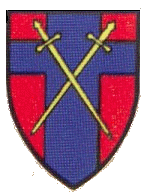Royal Artillery Museum (Referral to Information sources as at Sep 2024)
·
We are sorry that the Royal Artillery Museum archive is currently unable to accept enquiries.
This year the Archivist and volunteers have had to carry out a large amount of work in merging parts of the former Badley Library*
(at the Royal School of Artillery) into the Royal Artillery Archive.
The move and the preservation of important books and documents has had to take priority over other activity/work.
Our enquiry service has always been very popular, and we have built up a large backlog of enquiries that we will need to answer before we can re-open the service.
We hope to be able to accept fresh enquiries again in 2025.
If you are emailing with a donation offer, please re-send your email to
donations@royalartillerymuseum.com.
The archive remains open to researchers visiting in person.
If you wish to book a visit please call us on
01980 634208 and leave a message,
including possible visit dates.
If you are carrying out family history research, the advice listed below may be useful.
Family History AdviceThe Royal Artillery Museum Archive does not hold service records.
(
This information applies generally for other cap-badge / Arms of Service).
• Service records for men who served before 1921 often don’t survive.
Where they do, they are held at The National Archives, Kew (
TNA) (
www.nationalarchives.gov.uk) .
• Service records for men who served from 1921 onwards usually do survive.
They are held by the MOD (although some are currently being moved to
TNA).
See here to order them:
www.gov.uk/get-copy-military-records-of-service.• If you are looking for information on a soldier who died in WW1 or WW2,
the list of dead on the Commonwealth War Graves Commission website is a good place to start and is free to search:
www.cwgc.org/find-records/find-war-dead/.• The London Gazette records awards of gallantry medals (although it does not always give citations) and commissioning and promotions for officers.
It is free to search:
www.thegazette.co.uk.• The Army did not take official photographs of individual soldiers. There is a page on the useful website ‘The Long, Long Trail’ about finding photographs of soldiers. Although it is a WWI website, many of the suggestions also apply to soldiers in WWII, and through much of the Twentieth Century:
http://www.longlongtrail.co.uk/.../faq-how-can-i-find-a.../.• The National Archives (
TNA) holds a large number of WW1 and WW2 War Diaries for artillery units. Many (although not all) of their WW1 War Diaries have been digitised, and can be downloaded for free (http://www.nationalarchives.gov.uk/.../british-army-war.../).
The WW2 War Diaries have not been digitised
http://www.nationalarchives.gov.uk/.../british.../.• Commercial genealogy sites bring together different sets of recorded or digitised information from different sources, so they can be a way of checking lots of records quickly. However they charge for viewing records.
Different sites hold differing information, so it is worth carrying out some research before subscribing to a site.
Commercial genealogy sites include Ancestry (
www.ancestry.co.uk),Find My Past (
www.findmypast.co.uk), The Genealogist (
www.thegenealogist.co.uk), and Forces War Records (
www.forces-war-records.co.uk).• The Royal Artillery Museum’s WW2 Tracer Cards have been digitised on Ancestry.
• The Royal Artillery Museum’s WW2 Casualty Cards, and Attestation Ledgers
(c.1883 to 1942) are on Find My Past.
• The Long, Long Trail is an excellent WW1 website, and gives research advice:
www.longlongtrail.co.uk.• The Royal Artillery 1939-1945 website gives information on the organisation and equipment
of the Royal Artillery in WWII, including an over-view of individual units:
https://ra39-45.co.uk/.TNA have a large number of helpful research guides.
Try searching under topics such as “soldier”, “medals” or “prisoner of war”:
http://www.nationalarchives.gov.uk/.../research.../...Yours sincerely
Sian Mogridge
Archivist
Footnotes - private sources
*
The Badley Library in the Royal School of Artillery at Larkhill (Wiltshire) - is a much newer library but holds a useful collection of artillery publications and offer research for a fee. The Imperial War Museum (London) - The IWM holds a major collection of documents and photographs relating to the two World Wars.
Photographs BAOR - Public Relations Section at BAOR regularly despatched their photographic archive (negatives and prints with data on reverse) to the Imperial War Museum in London and at their archive at Duxford.